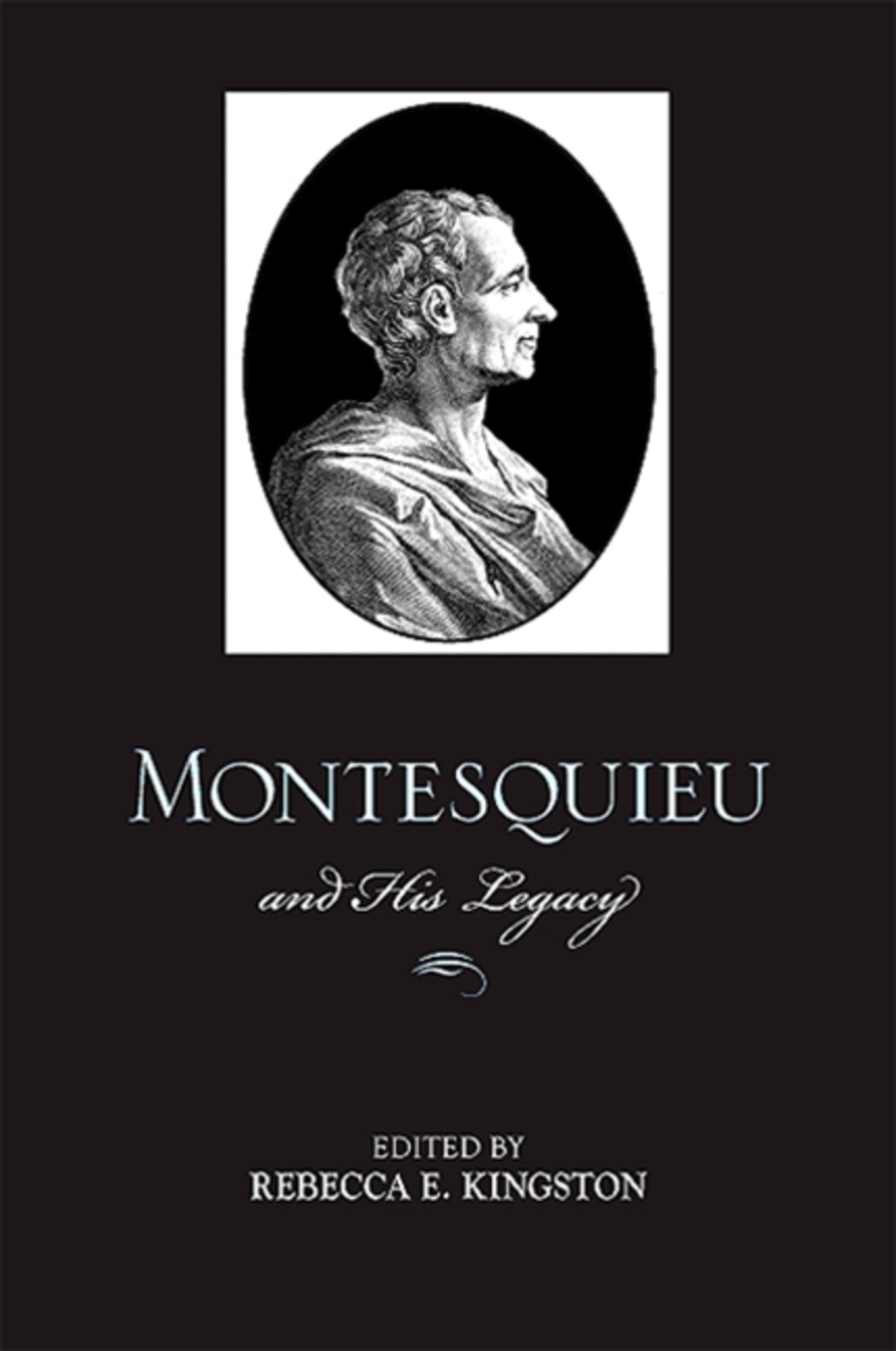We're sorry. An error has occurred
Please cancel or retry.
Montesquieu and His Legacy

Some error occured while loading the Quick View. Please close the Quick View and try reloading the page.
Couldn't load pickup availability
- Format:
-
13 November 2008

Essays on Montesquieu and the influence of his thought from the eighteenth century to today.
Montesquieu (1689–1755) is regarded as one of the most important thinkers of the Enlightenment. His Lettres persanes and L'Esprit des lois have been read by students and scholars throughout the last two centuries. While many have associated Montesquieu with the doctrine of the "separation of powers" in the history of ideas, Rebecca E. Kingston brings together leading international scholars who for the first time present a systematic treatment and discussion of the significance of his ideas more generally for the development of Western political theory and institutions. In particular, Montesquieu and His Legacy supplements the conventional focus on the institutional teachings of Montesquieu with attention to the theme of morals and manners. The contributors provide commentary on the broad legacy of Montesquieu's thought in past times as well as for the contemporary era.


"Kingston has brought together 15 thoughtful essays from a distinguished group of international scholars on the thought and intellectual legacy of Montesquieu … they are well crafted and deserving of a close reading by specialists in a variety of disciplines." — CHOICE
"Rebecca Kingston brings together an important and diverse group of voices, representing a variety of disciplines and orientations on arguably the most important French political thinker in the first half of the eighteenth century. This book brings intellectual history and political theory together, and it is focused on the 'informal aspects of political community' in Montesquieu's thought. Intellectual historians have long been writing about sentiment, manners, and moeurs in eighteenth-century European thought, but this book does a marvelous job connecting this important strand in Montesquieu's thought with a more complicated liberal legacy he helped to inspire." — Fonna Forman-Barzilai, University of California at San Diego
Acknowledgments
Introduction
Rebecca E. Kingston
1. What Montesquieu Taught: "Perfection Does Not Concern Men or Things Universally"
Michael Mosher
Part I. Morals and Manners in the Work of Montesquieu
2. Morals and Manners in Montesquieu’s Analysis of the British System of Liberty
Cecil Patrick Courtney
3.Honor, Interest, Virtue: The Affective Foundations of the Political in The Spirit of Laws
Céline Spector
4. On the Proper Use of the Stick: The Spirit of Laws and the Chinese Empire
Catherine Volpilhac-Auger
5. Montesquieu on Power: Beyond Checks and Balances
Brian C. J. Singer
Part II. Montesquieu’s Legacy in Eighteenth- and Nineteenth-Century Political Thought
6. Montesquieu’s Constitutional Legacies
Jacob T. Levy
7. Montesquieu’s Humanité and Rousseau’s Pitié
Clifford Orwin
8. Montesquieu and Tocqueville as Philosophical Historians: Liberty, Destiny, and the Prospects for Freedom
David W. Carrithers
9. Montesquieu and the Scottish Enlightenment
James Moore
Part III. Montesquieu and Comparative Constitutional Law
10. Montesquieu and the Renaissance of Comparative Public Law
Ran Hirschl
11. Free Speech and The Spirit of Laws in Canada and the United States: A Test of Montesquieu’s Approach to Comparative Law
Stephen L. Newman
Part IV. Montesquieu and Modern Liberalisms
12. Montesquieu’s Persian Letters: A Timely Classic
Fred Dallmayr
13. Montesquieu and Us
Jean Ehrard
14. Montesquieu and the Future of Liberalism
Ronald F. Thiemann
15. Montesquieu and Liberalism: The Question of Pluralism
Catherine Larrère
Bibliography
Contributors
Index



